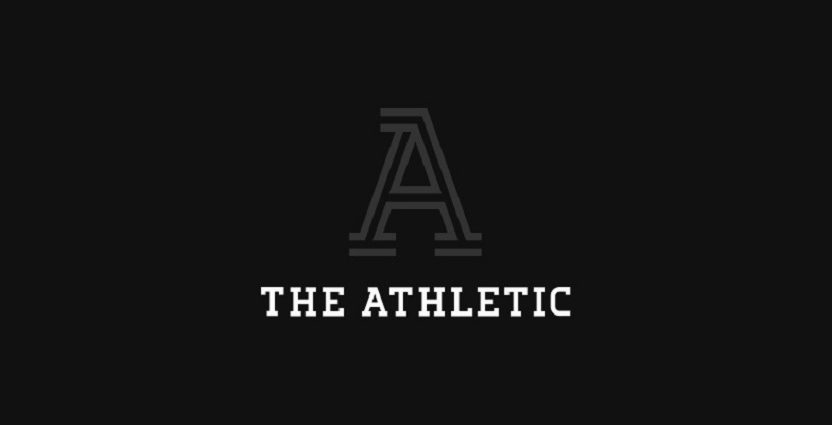As The Athletic has grown and spread over the past year or so, one criticism has clung to the budding company: that it has not cultivated a diverse enough staff. With each new batch of hires has come a familiar round of questions about why the site hasn’t brought in more women or people of color. Answers have been a bit hard to come by.
On Wednesday, Athletic Bay Area editor-in-chief Tim Kawakami and columnist Marcus Thompson spent about 10 minutes on Kawakami’s podcast musing on the company’s diversity or lack thereof. The duo repeatedly said that The Athletic could be doing better in terms of diversity, while also defending the site and suggesting it was no less diverse than other media outlets.
“If I had a criticism for the quote-unquote attacks, it would be, where are they for everybody else?” Thompson said. “Nobody has this figured out. Nobody is really trying. For me, it’s an easy target to throw darts at the infant company that hasn’t figured it out. Five years, if it looks shady? All right. But some of these organizations have had decades to figure it out and have not.”
Kawakami and Thompson’s conversation was prompted by some tweets from former NABJ president Gregory Lee, who determined from The Athletic’s staff pages that the company was 87.3 percent white and 74.6 percent male.
To recap my research, these are the diversity numbers @TheAthleticHQ:
87.3% white
74.6% white males
4% Black journalists
0 black females
0 black editors.
7% Asian
1.4% Hispanic
12.6% Women— Gregory Hampton Lee Jr (@nabjprez2011) April 2, 2018
Thompson, who is black, said on the podcast that he believed in the company’s commitment to diversity but felt that its leaders had to focus first and foremost on “running a successful business.” He pointed out that The Athletic, with its subscriber model, tends to look for writers who already have followings, instead of up-and-comers.
“We have these conversations internally. I’m not yet ready to say I don’t believe in them. I feel like, when I talk to the people who run our company, it is important for them. I don’t believe it is our No. 1 priority. That’s the mistake. They said, ‘Oh this is our No. 1 priority.’ Actually, no it’s not. Running a successful business is, which is why you get the one you think is best instead of the one who fits the goals of diversity.
“But I do think it’s important to people in our company, including you. You are a power broker in this company, and it matters to you. [Founder] Alex Mather, I still believe it matters to him. They definitely have to do better, but I do give them a pass because it is a young company, and it is a very unique operation. It’s not like you can just hire the best available. You have to hire the best available in this specific city for this specific beat. It’s not like, let’s find a good model and put him in Seattle. No, in order to run a subscription model, you have to find somebody who can make a way in Seattle. And usually that’s somebody who’s in Seattle. So that’s how we survive as a company. It’s getting people who will get people to pay from the beginning. So you can’t just plug people in.”
“With that said, they still could have done better, and they know that,” Thompson added. “And for me, as long as they continue to try to do better and continue to pay me very well like they are (laughs), I’ll be there.”
Thompson said he has shared his feelings on diversity with his bosses and recommended people they could hire.
The latest
“The reason why I don’t mind discussing this is that we believe in the company, have believed in the company from the beginning,” he said. “But you can believe in the company and still think the company can do better. You can believe in them and understand their reasoning and what they’ve done and still ask them to do better.”
Kawakami suggested that some of the lack of diversity could owe to The Athletic’s youth.
“It’s been a company that’s hit something, and it’s hit it fast, and as you expand beyond your original projections, you’re going into realms you hadn’t quite plotted out yet. And I get that, and you get that. The point is, they’re figuring it out. We’re all figuring it out.
“It’s just hard to say, ‘this is how it should go,’ when I look at newspaper newsrooms, and they’re not very diverse. And I look at possibly TV stations, and they’re not very diverse, and I look at NFL front offices, and they’re not very diverse.”
Thomspon then said the complaints about The Athletic’s lack of diversity had been “difficult” for him as one of only a handful of black writers at the site.
“When something like Greg Lee’s tweet goes out with the diversity numbers, my phone is on fire. Because I’m the representative, I guess. They call us the 4-percenters now because there’s only 4 percent black people. But one of the No. 1 complaints is people don’t feel like they have an opportunity to compete for the job, and I know there are a lot of behind-the-scenes work-ins, and even how we got out jobs, you and I, we talked directly with the founders of the company. There wasn’t an application.”
You can hear Kawakami and Thompson’s full thoughts below. The conversation on diversity begins around the 12:20 mark.






